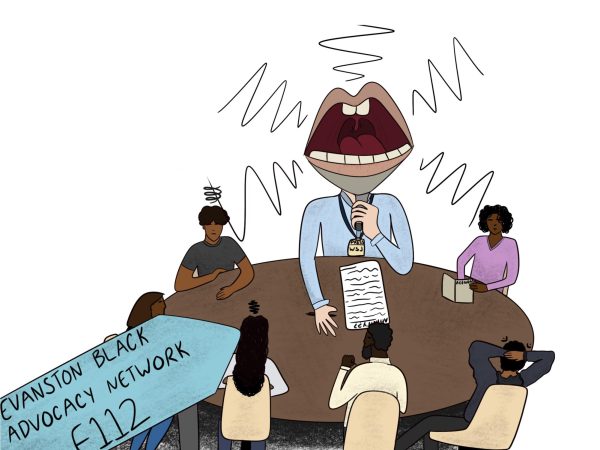We must support artists who resist toxic masculinity
April 3, 2020
Gender is a social construct. The idea of gender has been created and accepted as a society. However, when dealing with the conversation about gender being a construct, another conversation often opens up: toxic masculinity, its existence within gender roles and how it takes place in the media, especially the music industry.
Terry Allen Kupers, a psychiatrist at the Wright Institute, defines toxic masculinity as “the need to aggressively compete and dominate others” and “the constellation of socially regressive male traits that serve to foster domination, the devaluation of women, homophobia and wanton violence.”
The existence of gender binary and toxic masculinity continues to have many negative effects for young people, such as teaching cisgender men to suppress their emotions, encouraging violence, as well as the perpetuation of rape culture, assault and provocative comments that leave people unsafe.
The music industry and performers have a powerful impact on the public when it comes to how they perpetuate or challenge these destructive concepts. When they perpetuate these ideals into their music or into the industry, this harms the people who work in the industry and those who consume their work.
“A lot of boys make perverted comments towards girls, but they don’t see it as being bad,” freshman Louis Ford explains. “I have female friends, a lot of guys do. But if you defend them, you’re viewed as a simp or that you’re trying to get with her. Boys, straight boys especially, need to recognize that it’s gross and creepy. And it’s sad because you see it take place in the music industry as well. You’d expect an industry full of adults to have a better mindset.”
This toxic masculinity raises the question: What are men doing to hinder toxic masculinity and gender constructs in the music industry? In the era of the internet, there is greater visibility of men who are redefining masculinity.
Bad Bunny is a Latin music artist who redefines the term “machismo,” a concept that dictates many aspects of Latin American culture. Machismo is a societal term that is associated with male and female socialization in Latino culture; it is an “exaggerated masculinity,” according to Merriam Webster.
Machismo is a source of pride for Latino men. It has been conditioned in many young Latino boys that machismo is what defines manhood. In this way, reputation is one of the driving forces behind machismo. However, Bad Bunny is “ruining his reputation” with his painted nails and feminine outfits while obtaining music awards. His career represents the radical idea that he is pushing against machismo which so many young boys are raised to follow.
In addition, he sheds light on the abuse of women in his music video “Solo de Mi” and gender fluidity in his music video “Caro” which lyrics can translate to an LGBTQ+ anthem, especially considering how it was co-written by Ricky Martin who is an openly gay Puerto Rican singer who advocates for LGBT rights in his home country.
Martin’s vocals back Bad Bunny’s as Bad Bunny lets his guard down to ask in Spanish, “Why can I not be like that? What damage have I done to you?” showing the audience his true feelings towards the stereotype society has put on him to be a masculine artist.
Another example of artists fighting toxic masculinity is singer/songwriter Frank Ocean. His way of solving toxic masculinity is by redefining pop queerness, according to Rolling Stone. Ocean does this by singing about his past relationship,
“Frank is an amazing storyteller and he knows that. He knows how to use his experiences with his love life for songs that are deeply personal with him while simultaneously making the listener feel like they have a personal connection to it as well,” junior Luca Johnson.
According to the Rolling Stone in 2016, “Blonde is queer in the word’s truest sense: nonconforming, elusive, boundless. It celebrates the intangible, the strange.’ As described by Ocean in an interview with GQ “I’m giving you what I feel like you can feel,” he said. “You can’t feel a box. You can’t feel a label.”
In addition, singer-songwriter Harry Styles has also played a big role in challenging toxic masculinity in the music industry.
“In his new album, he’s seen wearing more feminine outfits and painting his nails in music videos and in public, and he’s fine with people judging him because he is comfortable with his own personal style,” freshman Vivian Rose explains.
This act itself may be seen as a sign to young boys that they are allowed to express more feminine stereotyped traits. Also, Styles identifies as non-conforming in regards to his sexual orientation which helps his fans realize that people can challenge labels.
Small acts such as painting nails and singing about past male lovers are needed in today’s society. When kids are growing up and they see representation that aligns with their identities, society can start to challenge gender norms and destructive ideas like toxic masculinity.
“I believe that if you identify as a man, you are a man and people that say someone is less of a man because they do things that are typically female-oriented, then they are just closed-minded,” freshman Damien Feliciano says.
Even if it’s small changes like painting fingernails or wearing feminine outfits to redefine the word “man,” these realities becoming more visible in the music industry can challenge gender binaries.
The music industry’s ability to reach people is limitless. Listening to these artists’ work or streaming their music is a stepping stone into helping bring awareness of the issues of gender binaries and toxic masculinity, so we should support artists like this because of the impact they have on us and our generation.
















